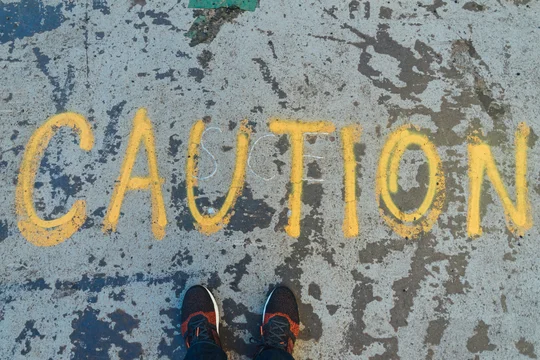
A trial in a high-end competitor patent case can involve quite a lot of logistics. One of many items that attorneys and staff have to coordinate is hotel reservations and travel to Delaware. Between the attorneys, staff, experts, witnesses, and client representatives involved in trial, this can be quite a lot of hotel reservations and plane flights—not to mention related equipment rentals and setup.
Obviously, it can be good to make trial space and hotel reservations on the earlier side if possible. There is only so much trial space in Wilmington, and if you wait you may lose your preferred option (potentially to the trial team on the opposing side).
On the other hand, things may come up that impact these reservations. It's not uncommon for cases to settle in the lead-up to or early days of trial—even when most of the attorneys involved think settlement is impossible. Witnesses can also be added or removed, schedules can change, and so on.
One other factor to keep in mind is that, given how busy our judges are, the Court often has to double- or even sometimes triple-books trials. The theory is that at least one of the cases will very frequently settle at some point prior to trial. But what happens when they don't? You may get an order like this one, issued last month, in which the Court invited the parties to elect to either try the case early or delay it significantly:
ORAL ORDER: The five (5) day bench trial in this action is double-booked on the Court's calendar with a jury trial beginning on July 28, 2025. Neither case has settled as of this date. The Court has availability to reschedule the bench trial in this action to begin on July 14, 2025, or some other date during that week so that the trial can be completed before July 25, 2025. Otherwise, the Court has availability to reschedule the bench trial in this action to begin on December 1, 2025. No other time in 2025 to complete the trial is available on the Court's calendar at this time. WHEREFORE, IT IS HEREBY ORDERED that counsel for the parties should meet and confer promptly and, by no later than 5:00 p.m. on July 8, 2025, file a joint status report of no longer than three (3) pages advising the Court of whether trial in this action remains necessary and, if so, whether the parties prefer the Court to reschedule the bench trial in this action to begin on July 14, 2025 or some other date during that week so the trial can be completed before July 25, 2025, or to reschedule the trial to begin on December 1, 2025. The parties also should advise in their joint status report whether they believe the case could be tried in less than five (5) days. Of course, the bench trial in this action will not need to be rescheduled if the jury trial (also scheduled to begin on July 28, 2025) settles before between today and July 28, 2025. ORDERED by Judge Gregory B. Williams on 6/27/2025. (lnb) (Entered: 06/27/2025)
The parties replied that trial remains necessary, but that the earlier and later dates wouldn't work. In response, the Court maintained the trial date—for now:
ORAL ORDER: In the event that the jury trial action that is double-booked with this action for trial beginning on July 28, 2025 does not settle and this action needs to be rescheduled, this action will be rescheduled for a four (4) day bench trial to begin on January 12, 2026 at 9:30 a.m. On the other hand, in the event the jury trial that is double-booked with this action for trial beginning on July 28, 2025 does settle, this parties in this action should be prepared to proceed with trial beginning on July 28, 2025. The Court will advise the parties in this action, by no later than July 23, 2025, whether this action is being rescheduled for trial to begin on January 12, 2026, at 9:30 a.m. ORDERED by Judge Gregory B. Williams on 7/9/2025. (lnb) (Entered: 07/09/2025
Biogen Inc. et al v. Zydus Worldwide DMCC, C.A. No. 23-732-GWB, D.I. 82 (D. Del. July 9, 2025).
There are a couple of notable points here for frequent trial litigators:
- It looks like the Court gave the parties just over a month's notice of the potential change.
- With the way things turned out, the parties may ultimately have 5 days' notice that their trial is moving. Typically, at T-minus five days before trial, counsel, client representatives, and some number of witnesses would be staying at a hotel in town, most often set up with a trial space with tables, chairs, monitors, printers, and other equipment. Counsel will likely be doing witness prep and drafting openings. If the other trial doesn't settle, as counsel you'll have a big ship to turn around.
- When a trial date needs to move, the next available trial date may be quite a ways out—in this instance, into next year. The default assumption in the District of Delaware is that trial dates will stick, but it's worth keeping in mind these kinds of things can absolutely happen.
This kind of thing happens occasionally, and not just in D. Del. I've seen it happen to a trial another jurisdiction too.
Is there anything you can do to prevent it? Not really. It's not realistic to ask the Court not to double-book trials.
Of course, in the lead up to trial, you can always check PACER and try to figure out whether the judge still has another trial scheduled for the same time to at least give the trial team a heads up. But that can be a bit of an error-prone process. The reality is that parties and litigators just have to be able to shift if needed. And it's nice, here, that the Court gave the parties some options.
If you enjoyed this post, consider subscribing to receive free e-mail updates about new posts.





